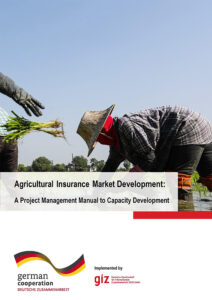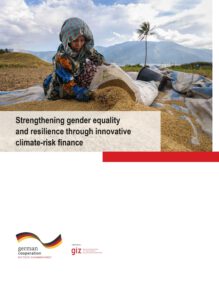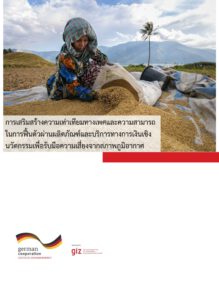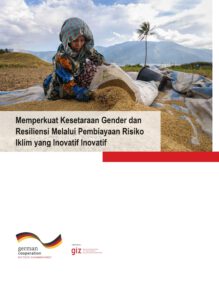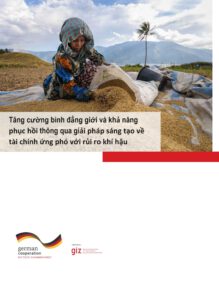GIZ introduced the latest four-million-euro project for upscaling ASEAN farmer’s access to financial tools essential for enhancing climate resilience and gender response in agricultural sector.
Commissioned by the German Federal Ministry for Economic Cooperation and Development, the Innovative Climate Risk Financing for the Agricultural Sector in the ASEAN Region Project (AgriCRF) will be implemented at the regional level through the Food, Agriculture and Forestry Division of ASEAN Secretariat, ASEAN Sectoral Working Group on Crops and at the national level in Indonesia, Thailand and Vietnam.
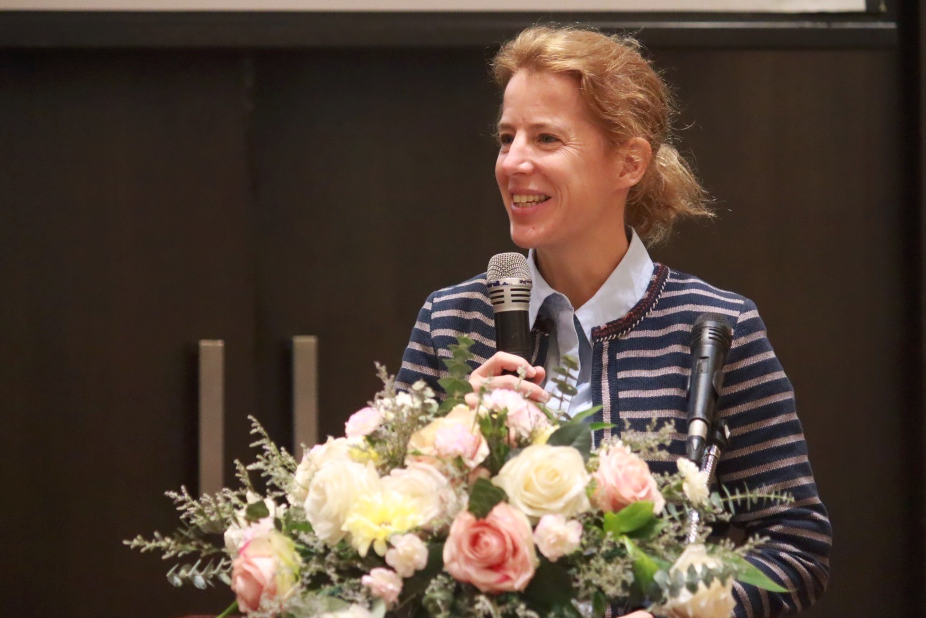
This three-year project is aimed at improving climate resilience, promoting gender equality and availability of financial products regarded as the three key solutions to sustainable agriculture.
“With this new project, we can really conduct activities and pilots on the ground with stakeholders from the agriculture and financial sector up to our farmers in the field,” Nana Kuenkel, Agriculture and Food Cluster Director and Coordinator said during a recently-held multistakeholder consultation workshop.
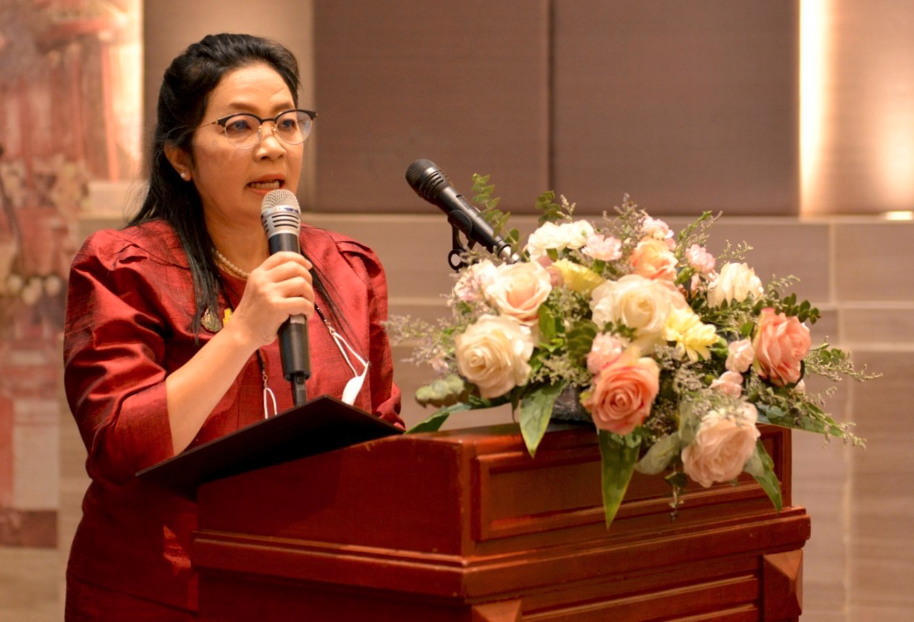
Prapit Wongtiam, Director of Planning Bureau at the Department of Agriculture (DOA), said agriculture is a vital source of income for majority of the Thai population, similar to its ASEAN counterparts. However, the country is experiencing more frequent natural disasters and extreme weather such as heat waves, droughts, storms and rising sea levels.
“Many scientific studies have shown Thailand is listed among the most vulnerable to long-term climate change impact on productivity. Enhancing our farmers with climate-resilient capacities is crucial,” she said.
At the regional level, a publication titled “10 Phases in Developing a National Crop Insurance Program: Guide Overview” was introduced in 2018 as an initiative for the agricultural sector to tackle climate change. The ASEAN Sectoral Working Group on Crops also introduced its 2021-2025 strategic plan to improve climate resilience in the agricultural sector.
In Thailand, government and private sectors, particularly those in research and development, are working with stakeholders to improve climate resilience capacity among farmers and their access innovative financial mechanism, she said.
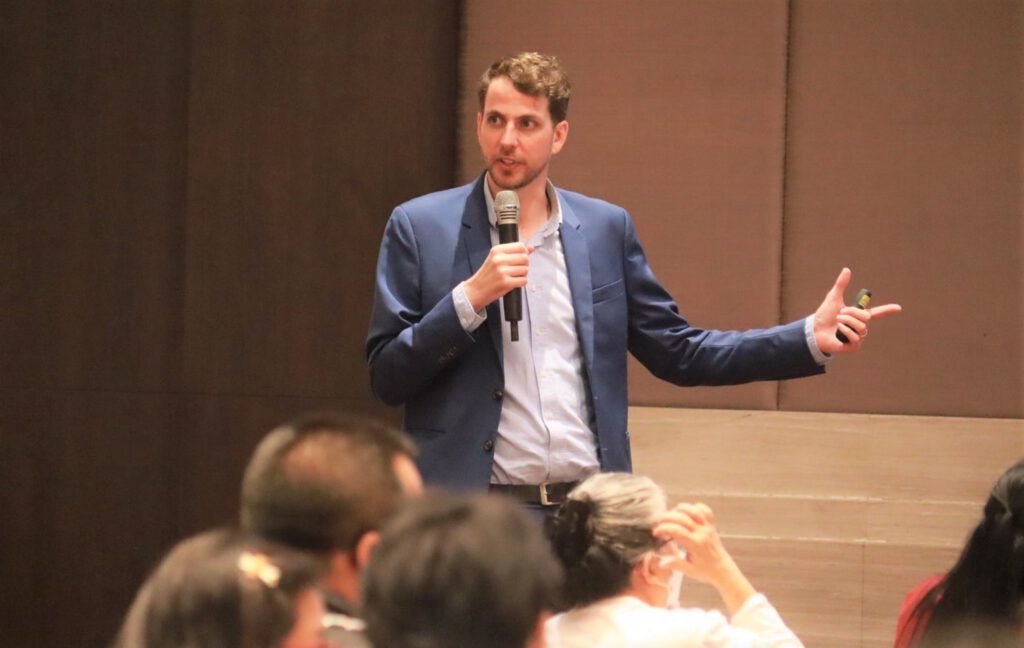
Julian Tost, AgriCRF Project Director, said financial services options to better protect smallholder farmers and their agricultural production against climate risk were still limited. Hence, the project is designed to support financial institution in developing and improving financial products that meet the needs of Thai farmers and strengthen capacity to better manage climate risks as well as financial literacy through the following aspects:
- Climate-risk financing: innovative financial instruments and mechanisms should be available to help manage and transfer the financial risks associated with climate change impacts.
- Resilience enhancement: implementation of strategies and measures will improve farmers’ capacities to withstand and recover from any unforeseen climate change impacts.
- Gender responsive: consideration of gender diversity and equality will be taken into account to ensure that interventions are effective, sustainable, and equitable for all individuals.
Over 70 participants from Department of Agriculture regarded as the key partners and related stakeholders who are government officials, agro-economic experts, academics, think tanks, and farmers groups participating in the workshop actively shared their inputs and recommendations on how to implement the project and drive forward the initiatives through the following three topics:
1) Financial products and services for climate-resilient and gender-responsive climate finance
An overview of existing financial products and services were collected including potential areas for improvement such as reducing the operational cost of crop insurance scheme and exploring customized crop insurance packages to meet the needs of farmers. Digitalization and use of technology to improve existing financial produces was also emphasised.
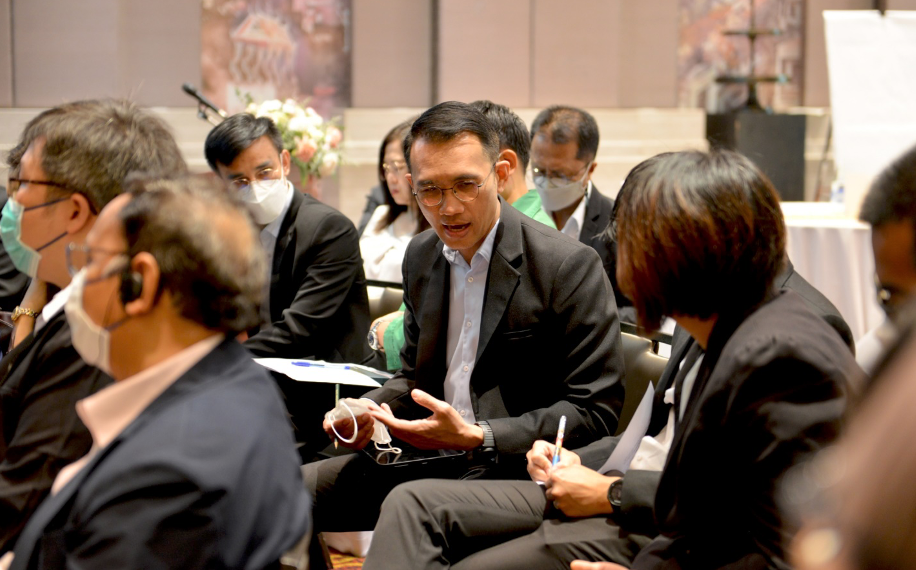
2) Financial literacy and capacity building for farmers and their institutional partners
Farmers faced challenges due to impact of climate change such as unpredictable weather, and extreme weather-events. The discussion recommended to equip farmers with knowledge to better manage climate-related risks and create good understanding on the benefits that climate risk financing products such as crop insurance can bring.
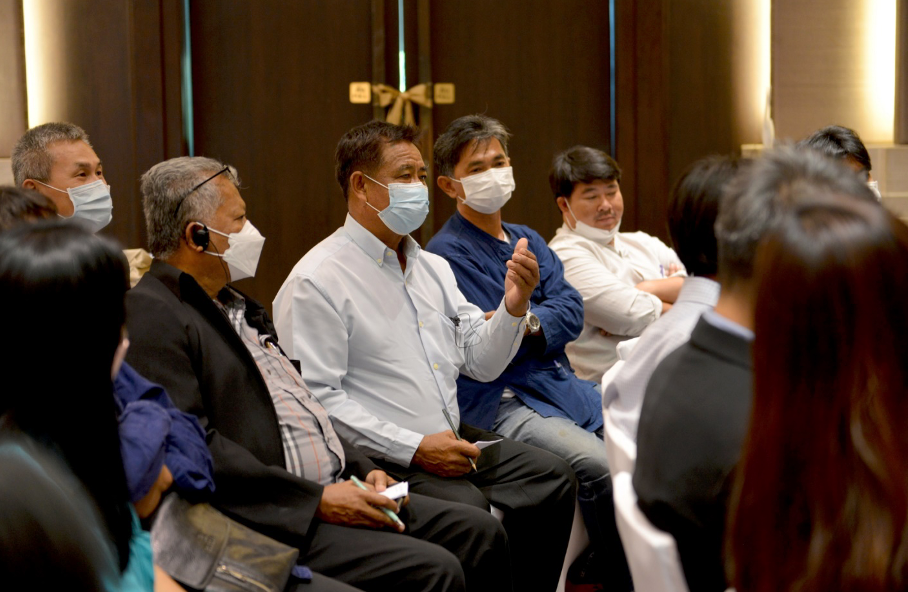
3) Creating enabling environment
Existing government policy in Thailand to support farmers during extreme weather events and disasters were shared including on-going initiative to improve current policy framework and coordination alignment. The discussion recommended to explore the role and engagement of private sector and businesses as the current support provided to farmers heavily relies on government support and subsidies.
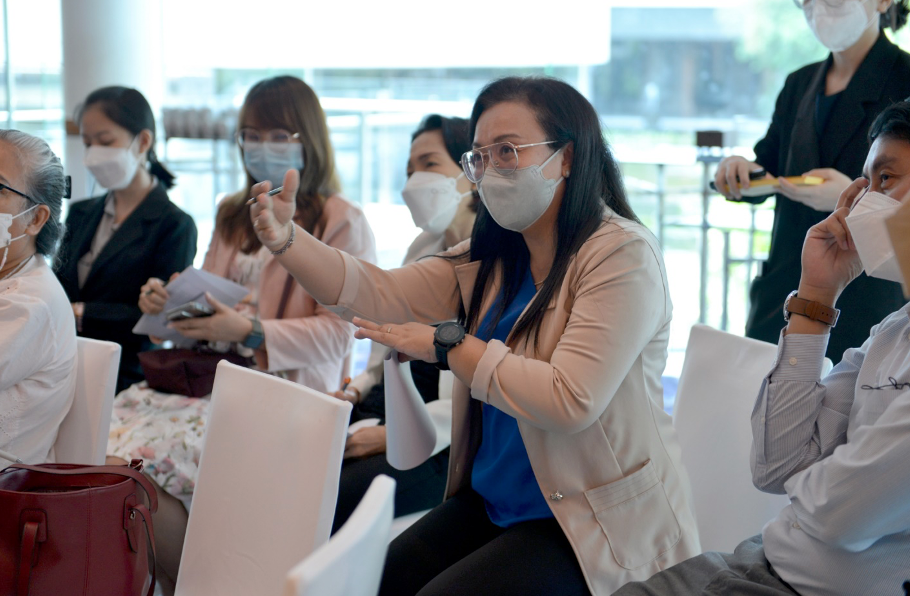
Mr. Tost said the team would take into account recommendations from the working groups and would collaborate with DOA and other stakeholders to implement the project towards the aimed outcomes including promotion on the topic of climate risk financing in ASEAN through regional technical knowledge exchange and policy recommendations, increasing number of climate risk financing products and services that are gender-responsive and meet the farmers’ needs.
A linkage between sustainable standards and climate risk financing for farmers in the ASEAN region should also be developed upon the targeted project completion, he said. ■

